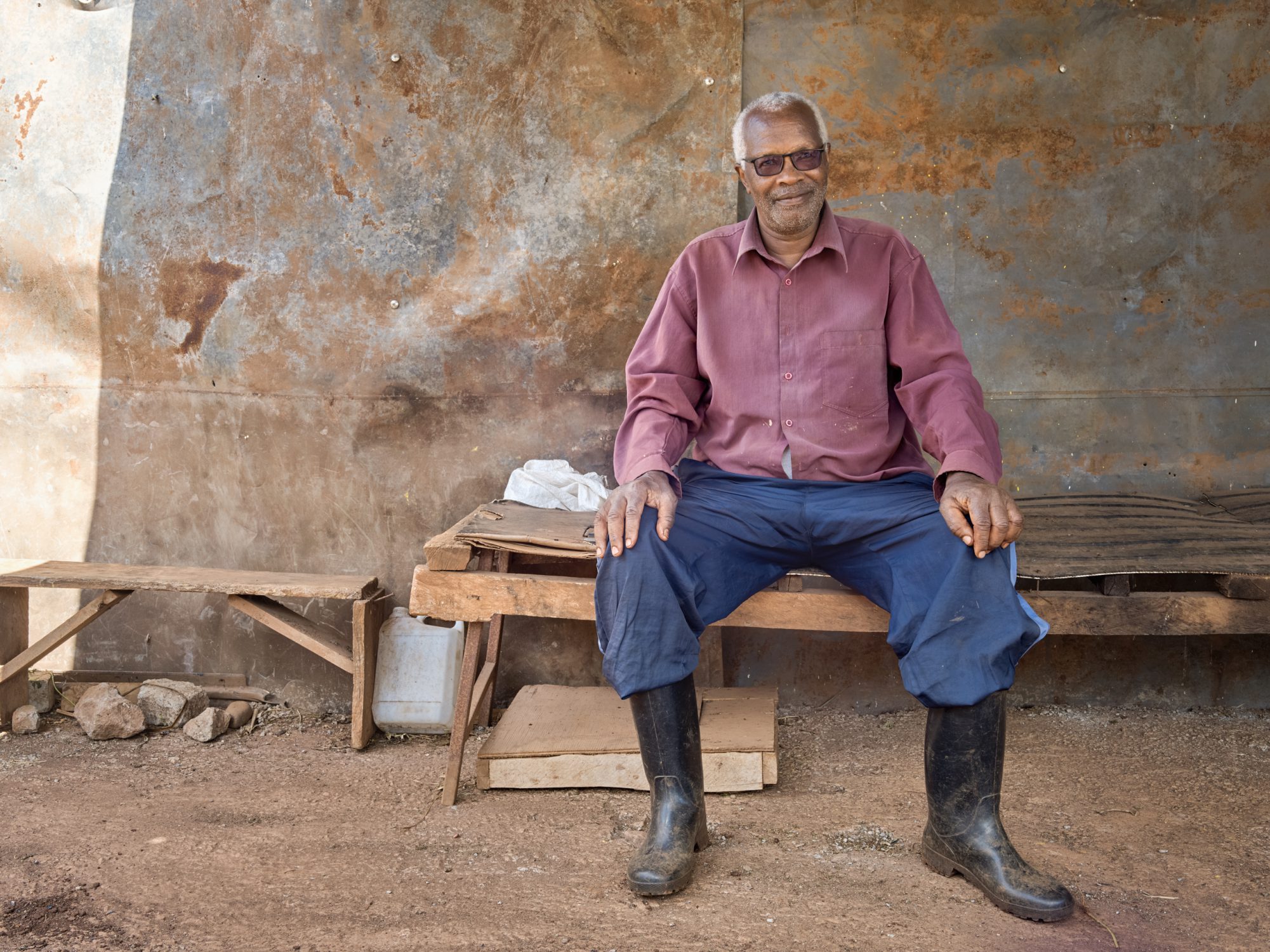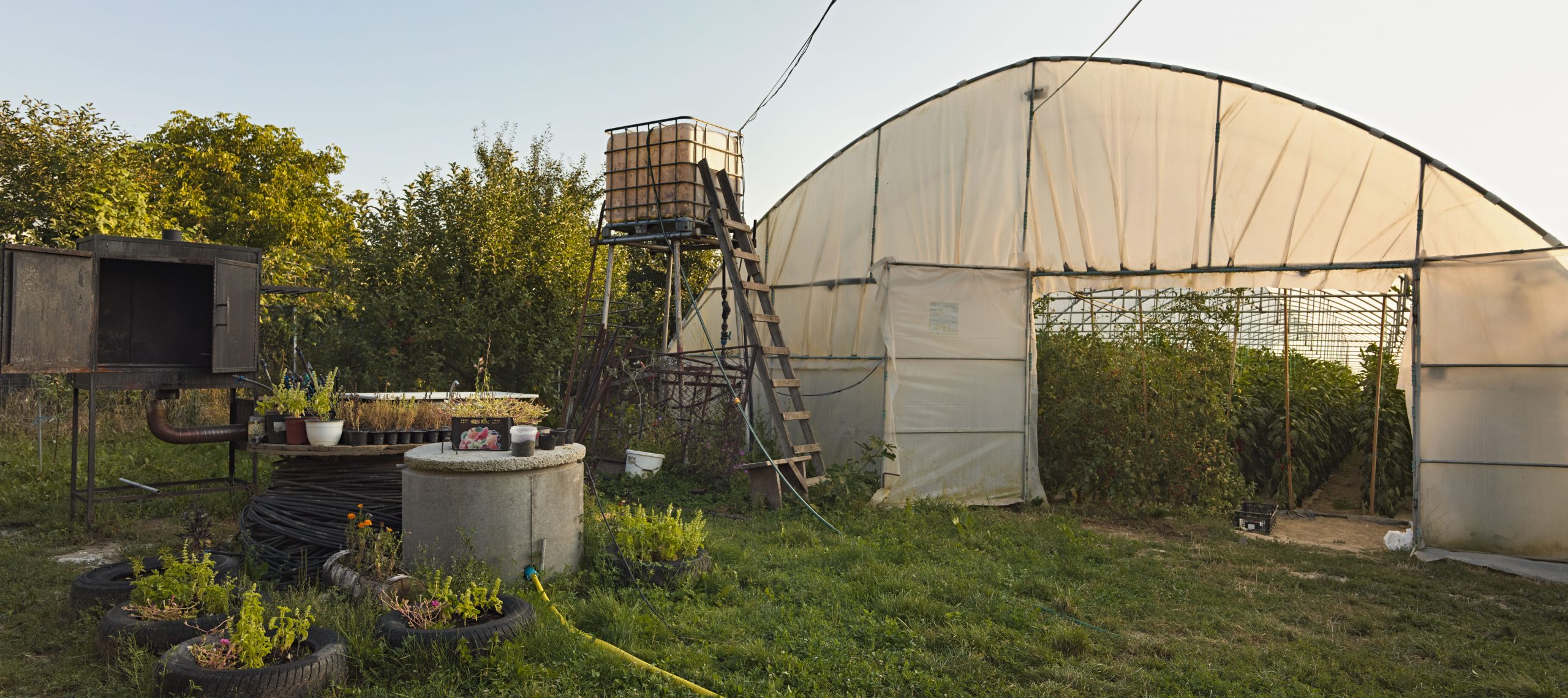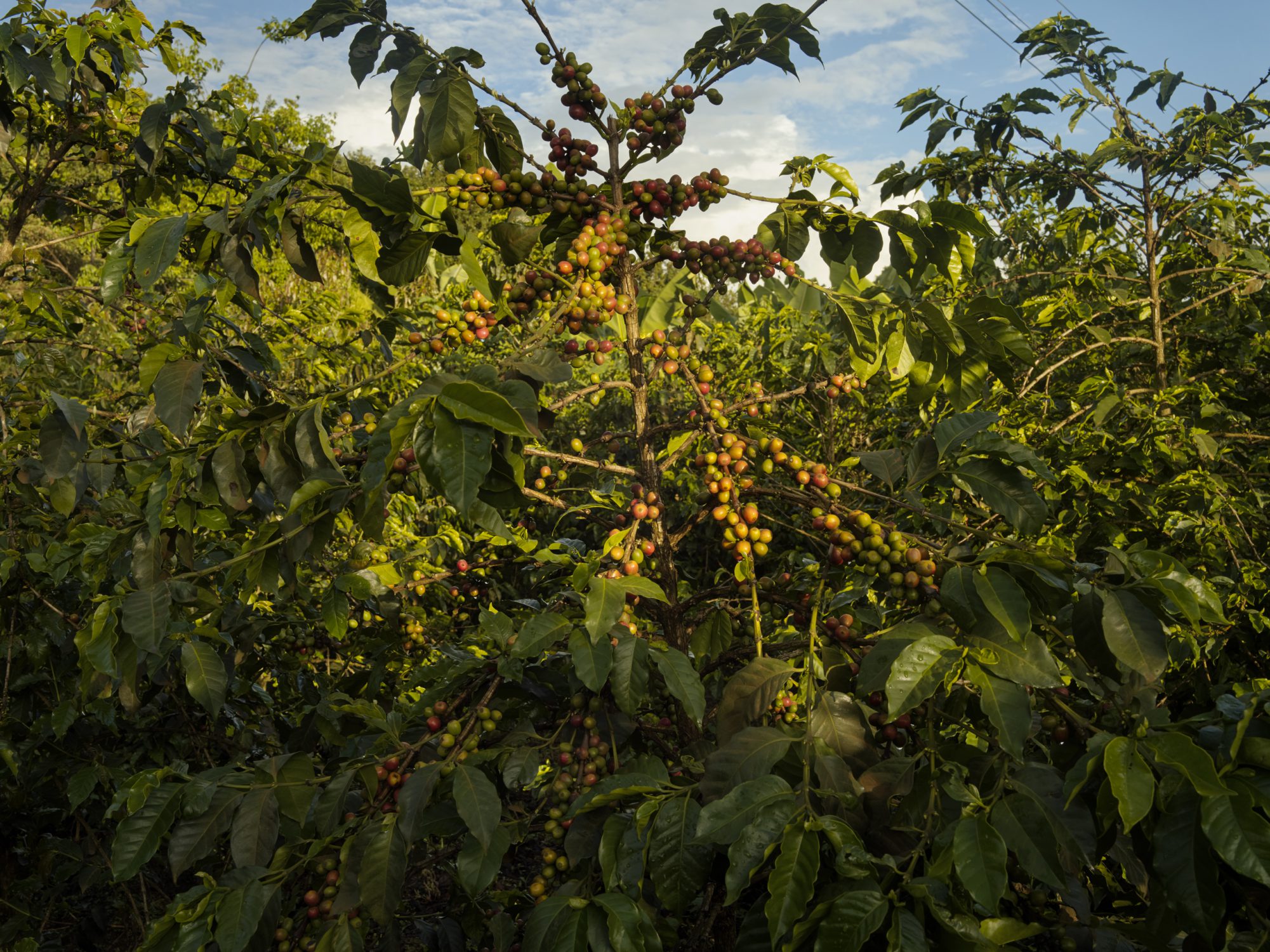
In 1893 monks of the French Order of the Holy Ghost planted the first coffee bushes in Kenya, having brought them from the island of Réunion. Now Kenya is known as the country where some of the most refined strains of coffee in the world are grown.
Kenya has 150,000 coffee farmers, and six million Kenyans work directly or indirectly in the coffee industry. Two thirds of the coffee produced in the country comes from small-scale farms, the rest from large plantations. Kenya produces some 100,000 tons of coffee per year. Despite the excellent quality of the beans, its small coffee farmers are among the poorest in the world.

Coffee time
We meet Caesar and his wife Anne in the morning, around coffee time, on their farm in Embu. Caesar is chairman of the fruit and nut cooperative Runyenjes, to which more than 200 small-scale coffee growers in Embu County belong. Immediately on our arrival, Caesar starts talking nineteen to the dozen about how he grew up here on this land.
After ‘liberation’ the land was given to his family and he talks about their connection with the land, the soil and the community.
I interrupt him to ask, what about coffee? I describe to him how attached the Dutch are to their cup of coffee. He stands up and beckons, and we follow him along a path across the farm. A few minutes later we find ourselves looking at one of his coffee bushes. Isn’t it beautiful? It explains why more than 95% of all the coffee produced in Kenya is for export. Kenyans don’t drink coffee but tea. A little later Anne serves us a cup of Nescafe.
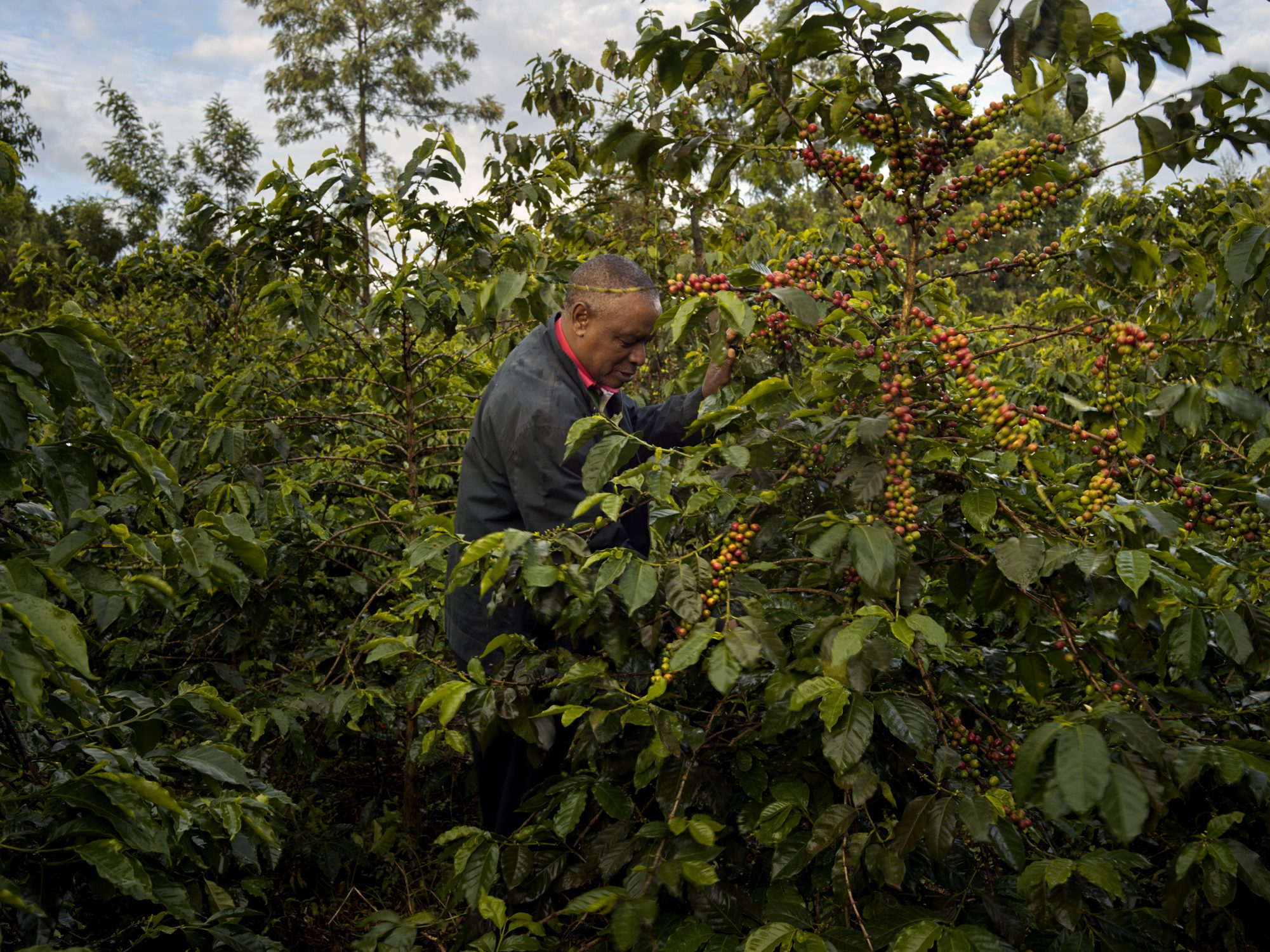
Shade-grown coffee
Caesar’s coffee farm isn’t a plantation but a food forest. Coffee bushes are plants that love shade. Shade-grown coffee is grown in the shade of trees according to the principles of natural ecology. The result is a microclimate that ensures a resilient ecosystem. Shade-grown coffee has a richer taste; the berries ripen more slowly, so their natural sugar content is higher.
Coffee originally grew in the shade, but the development of plantations, under the influence of colonialism, changed coffee production worldwide into a monoculture. The coffee varieties chosen for the plantations were of a type that could grow in dry and sunny conditions.
Industrial coffee production is not sustainable. Modern coffee plantations using industrial methods in fields with no shade lead to a reduction in woodland, to aridity, insect deaths and increased erosion. The use of chemical pesticides and herbicides threatens public health and the entire ecosystem.
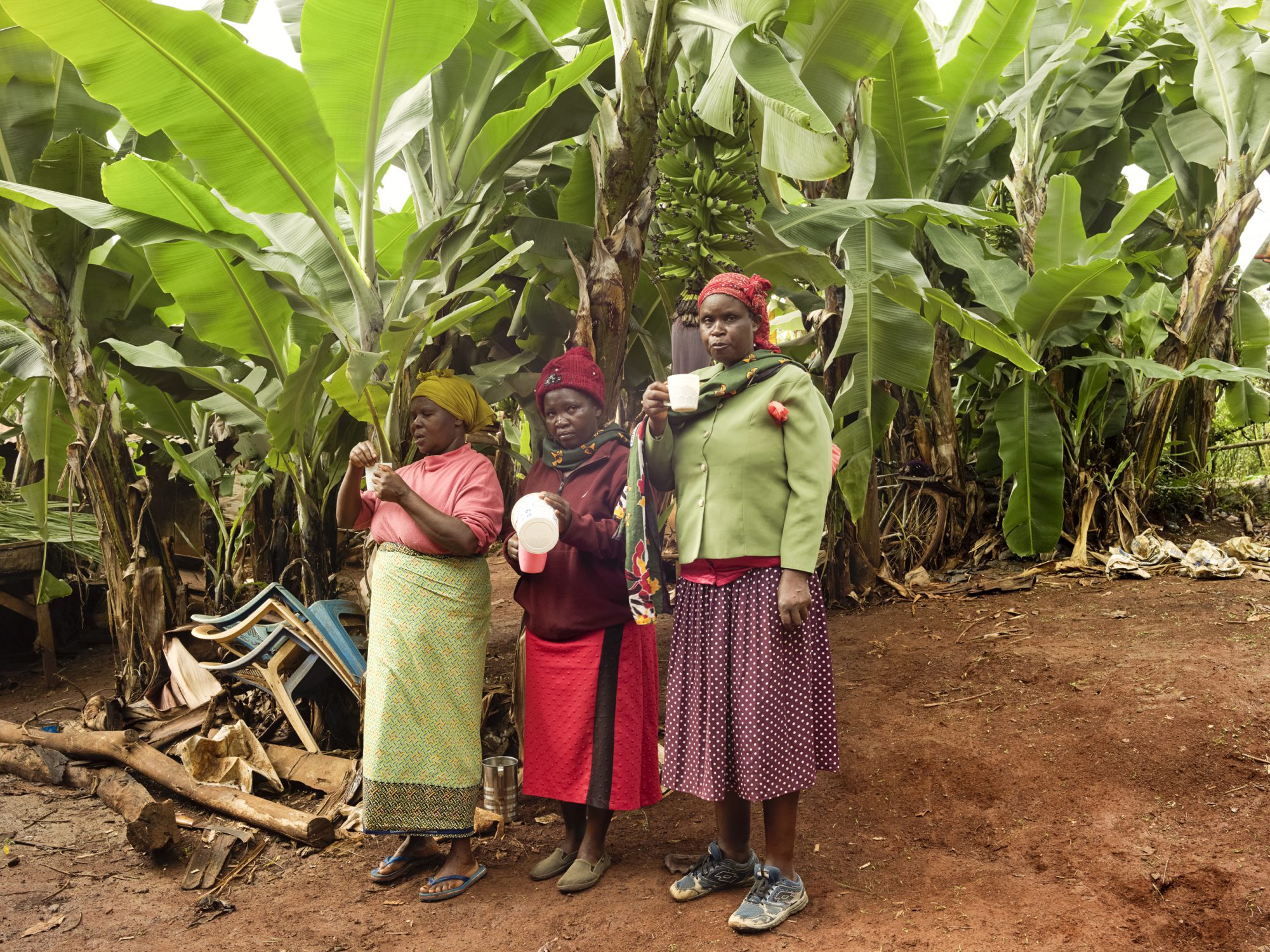
Tea time
As well as organic coffee, Caesar grows tea, again using organic methods of course. Kenyans are not coffee drinkers. They prefer tea, often Indian spiced tea with sugar. Lots and lots of sugar. What the tea-pluckers drink is ordinary tea with a lot of milk (possibly another habit acquired from the British).
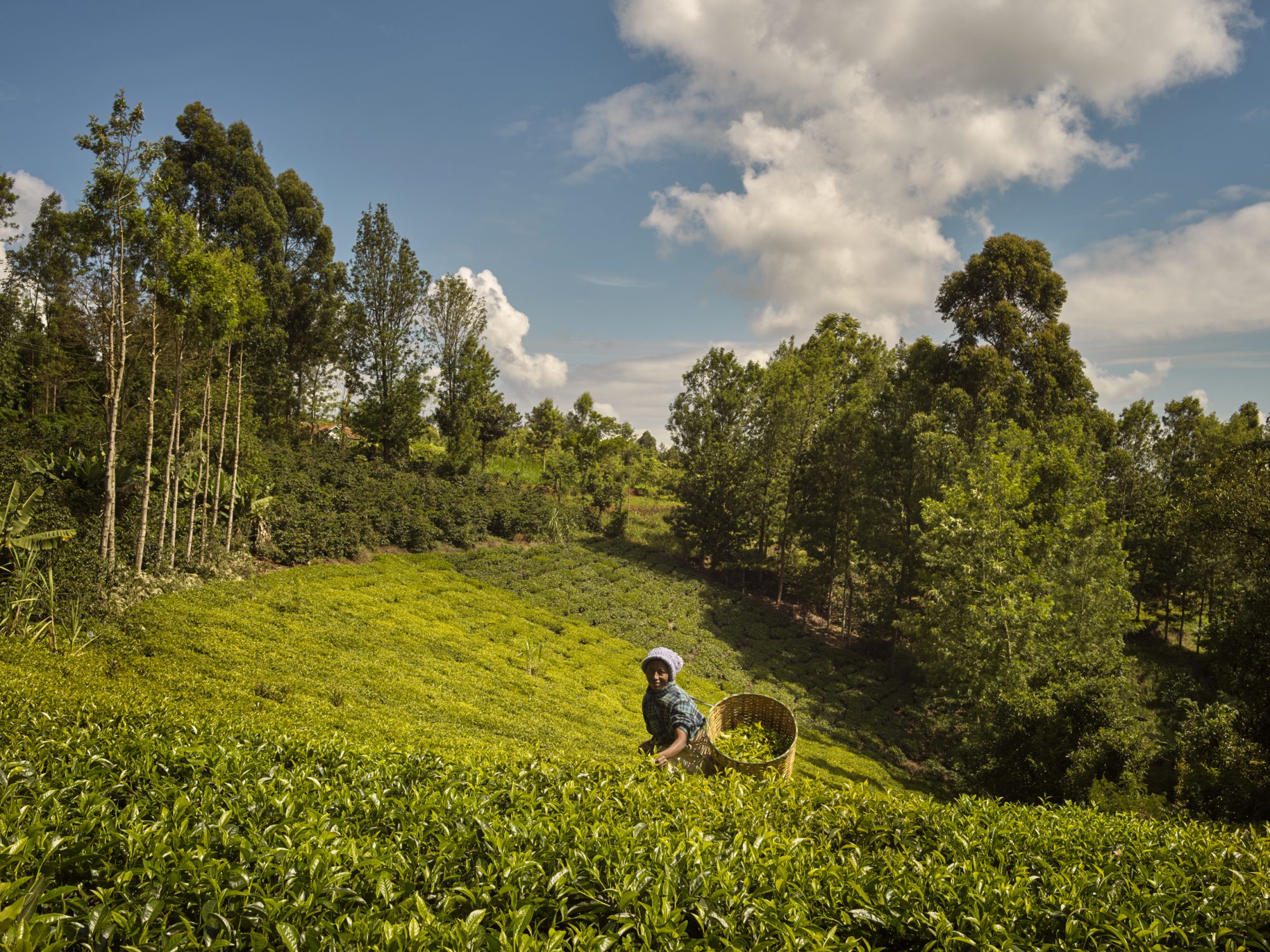
The harvesting of tea leaves is still done by hand here, which Caesar says definitely gives the best quality. The tea is plucked every two months. Only the new, young, fresh leaves are picked.
Caesar gives us a brief lecture on tea. Is it a bush or a tree? There are tea trees that, without pruning, can reach seventeen metres tall, and the tea bushes can get to four metres tall if they are not pruned. Caesar was a teacher before he became a farmer, and he can’t stop teaching. We politely interrupt him for a second time. After all, we came for the coffee.
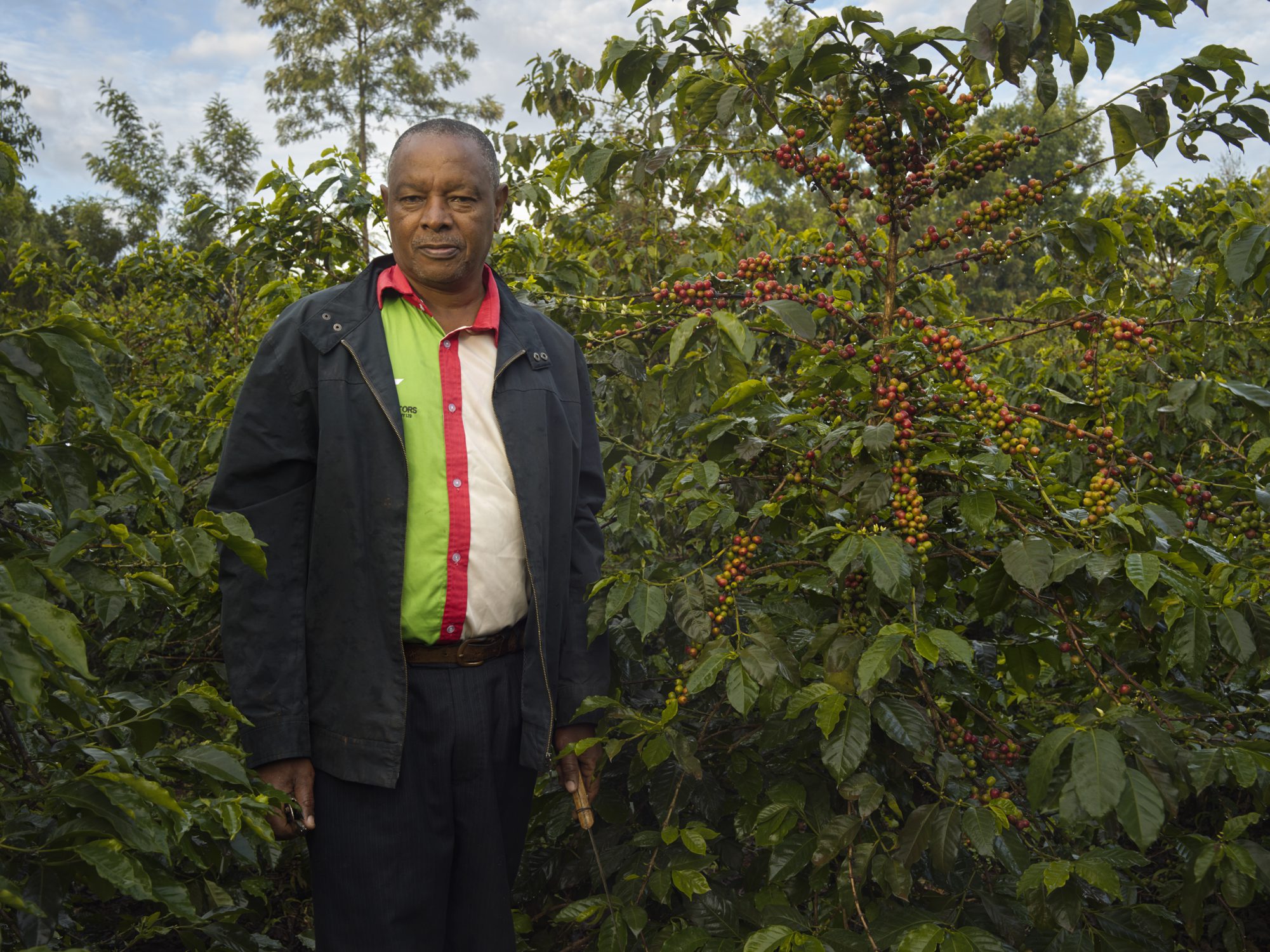
"This isn’t a coffee plantation, it’s a food forest that gives us not just coffee but everything we need. "
Caesar Munyi
Organic Coffee Grower
Cutting out the middleman
Coffee growers in Embu form a tight-knit community, and the organic coffee growers especially are often the smallest of small farmers, most with between 50 and 500 coffee bushes on their land. They visit each other, share knowledge and learn from each other. But the most important job of the cooperative is to cut out the middleman.
‘As a cooperative we try to get as fair a price as possible for our top quality, organically grown coffee. Just look here on the farm at the way we grow our coffee and treat the land.

It gives what you ask for.
No chemicals are used, no artificial pesticides or herbicides, only organic plant stimulants. The manure from the cows is spread over the land in liquid form, and some is used in the biogas installation they use for cooking. ‘We have no input from outside. If you care for the land on which you live and farm, then it gives you everything you ask for.’
On seven acres of land they grow some 40 other crops in addition to tea and coffee: leafy vegetables, nuts, bananas and various fruits (some of which we have never heard of before).
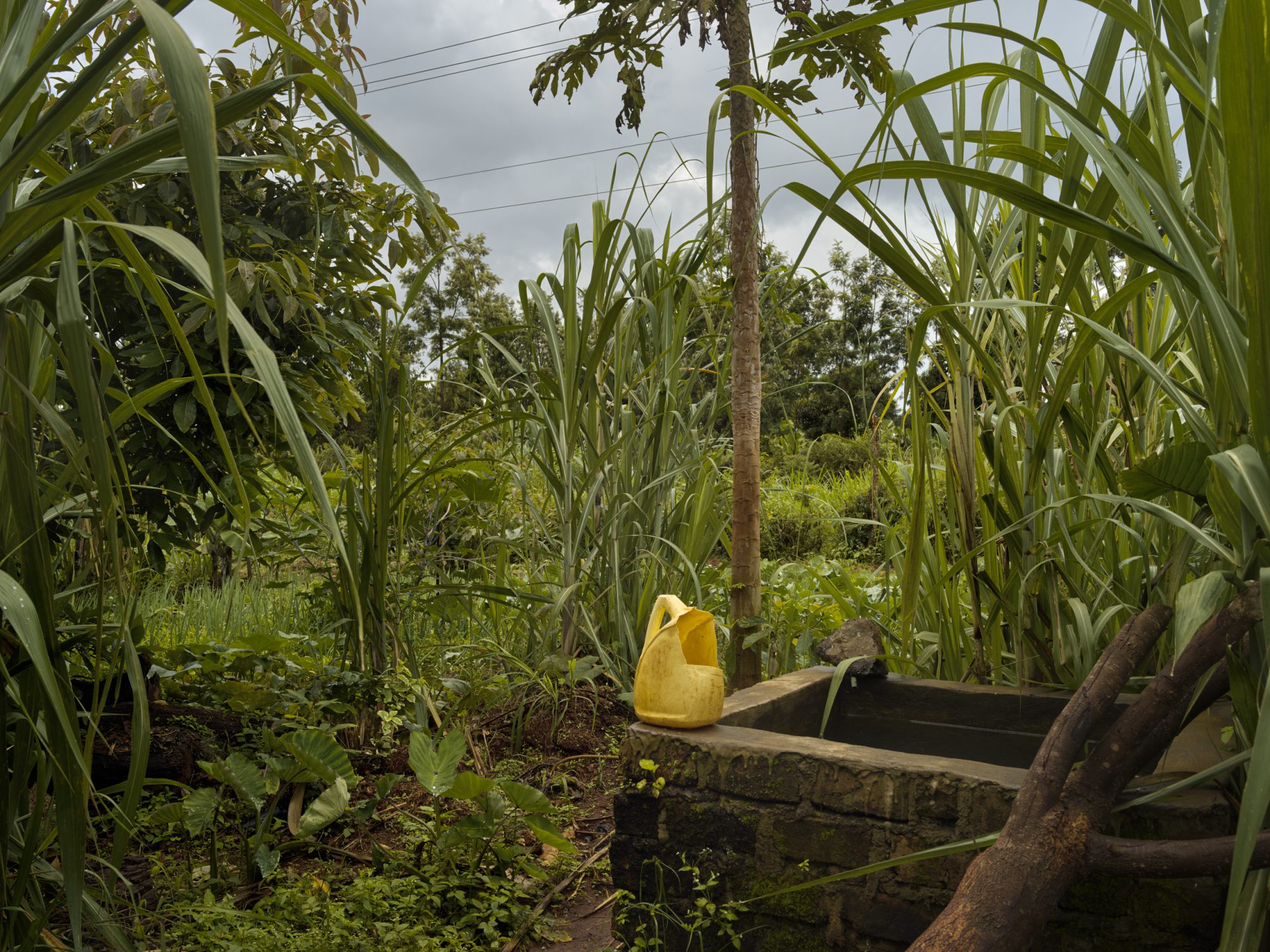
The forest as a supermarket
Anne comes to ask us whether we’ll stay for meal. A little later we see her walking across the land with her shopping basket: potatoes, check; spinach, check; bananas, check. The cows provide milk and manure, the chickens eggs, the pigs manure and perhaps one day bacon, and the rabbits provide urine.
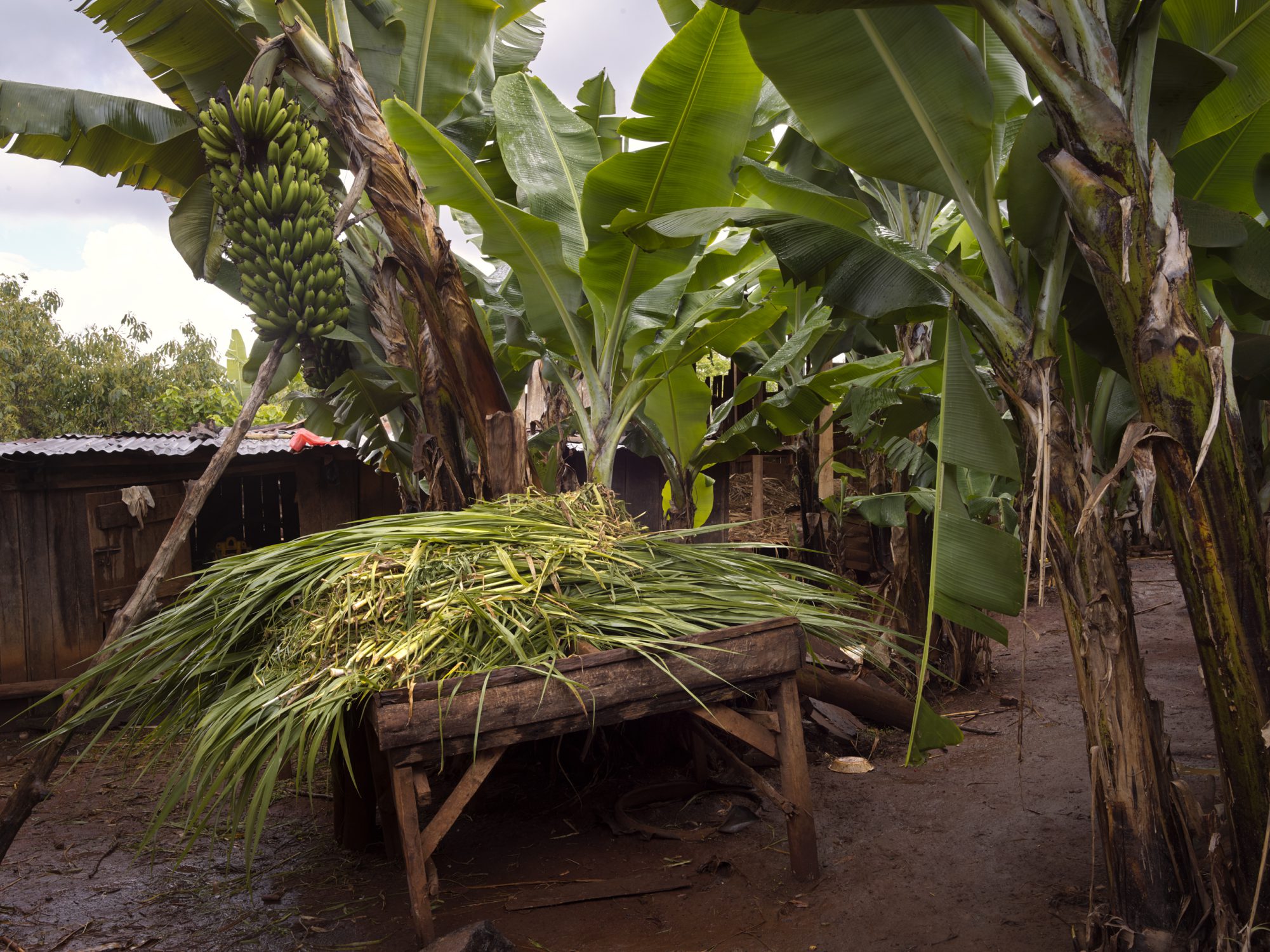
‘Rabbit urine has several merits when used as a fertilizer and pesticide. It contains a high level of nitrates, phosphorus and potassium, which are needed by plants to grow. It’s environmentally friendly and non-toxic.’
Rabbit urine as a fertilizer or pesticide
The grass that is grown specially and fed to the 40 rabbits is for the production of fertilizer and pesticide. Rabbit urine has a very high nitrogen content, because rabbits drink hardly any water. It also contains a lot of phosphorus and potassium, which helps to improve soil fertility.

The generous soil
With their farm, Caesar and Anne are an example to the 200 farmers who belong to the cooperative, but to us they are also a great example of how, with farming knowledge, love of the land and great dedication, you can turn less than seven hectares of land into a bountiful farm that gives you everything you need, without any external inputs.
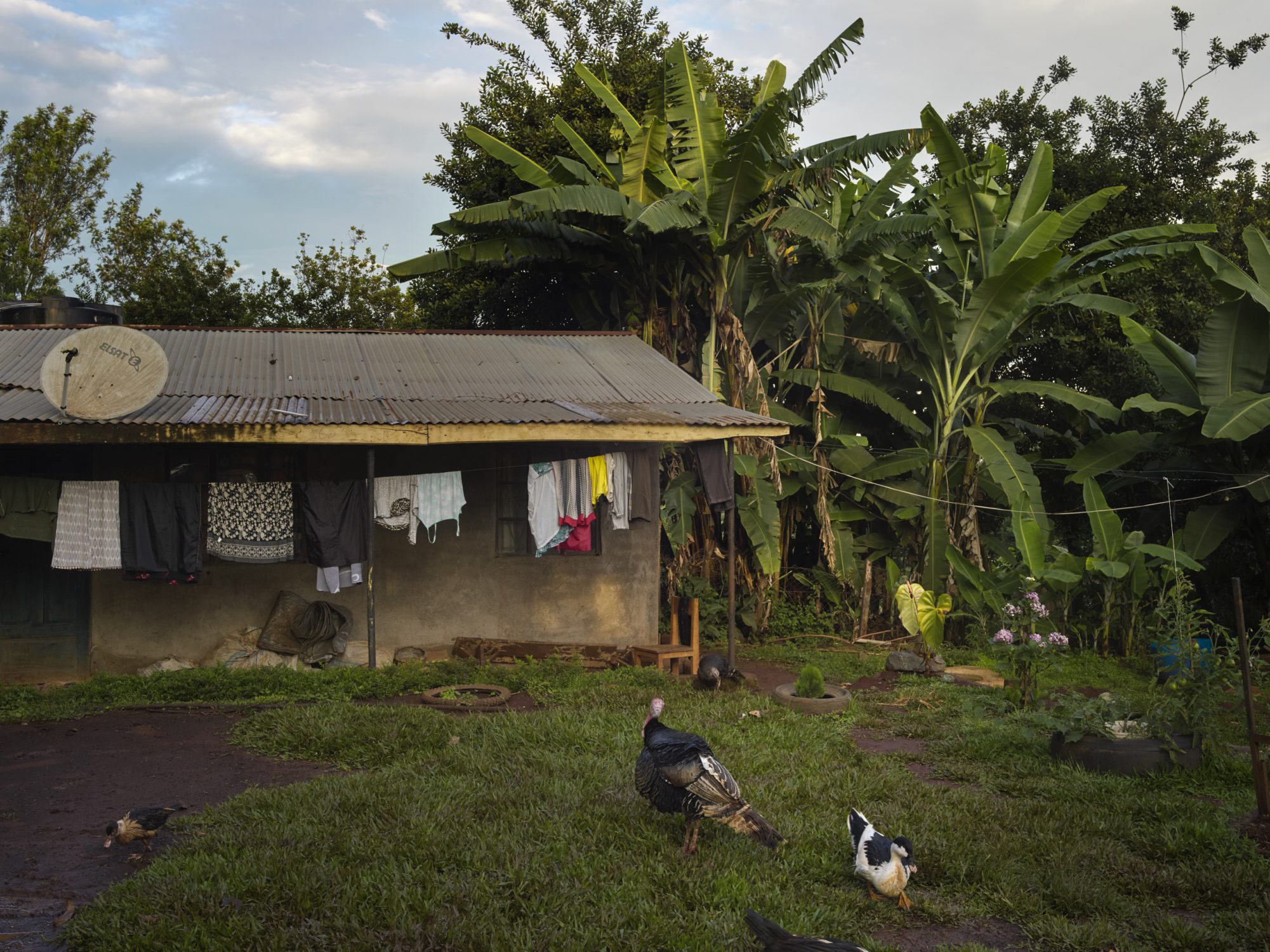
Nyumba yangu ni nyumba yako
We thank Caesar and Anne for their hospitality and for the lunch. We are invited to come back any time: ‘Our house is your house.’ Before we leave we’re given another big cup of Nescafe.
We have selected another two stories that might inspire you.
